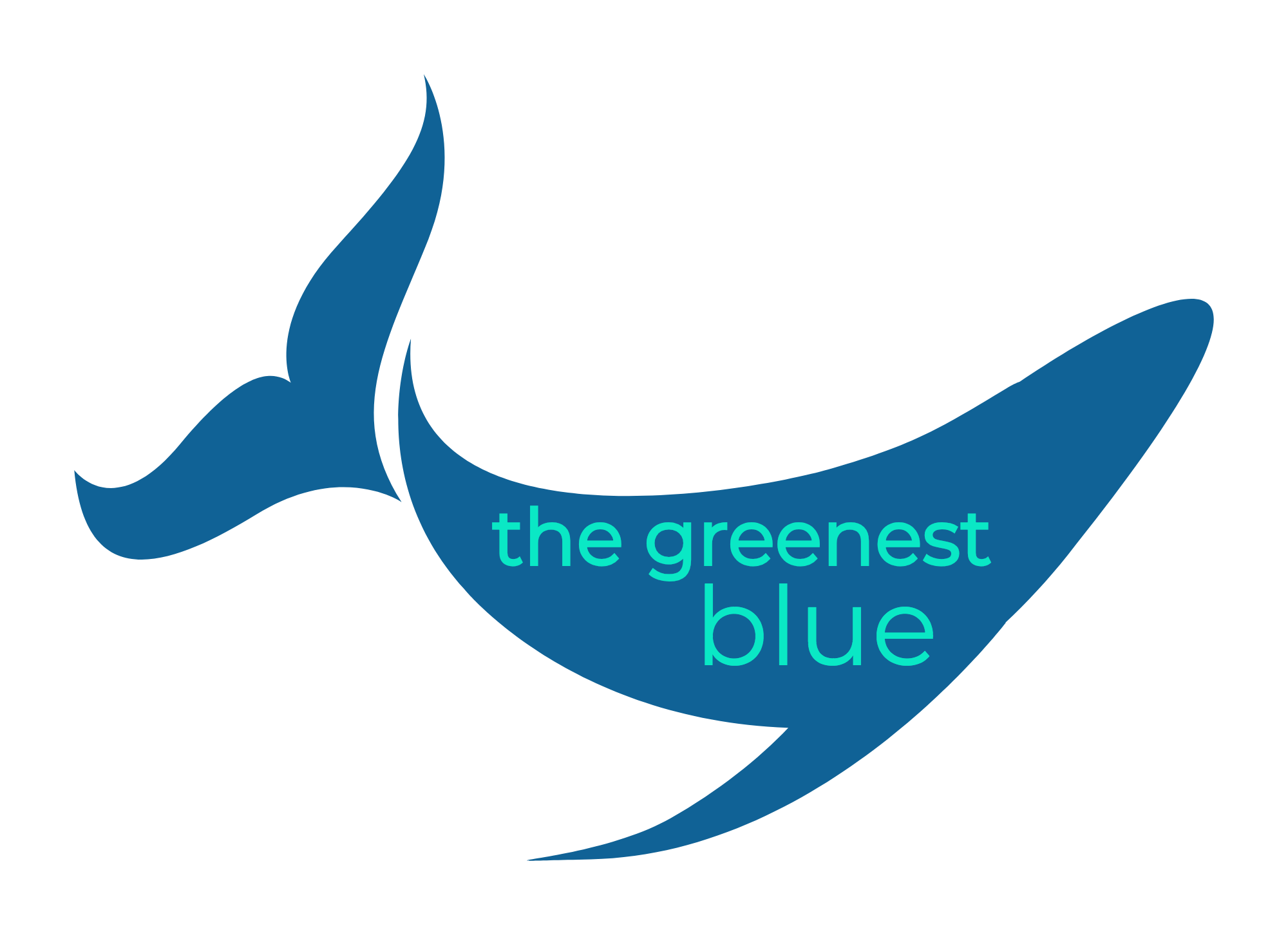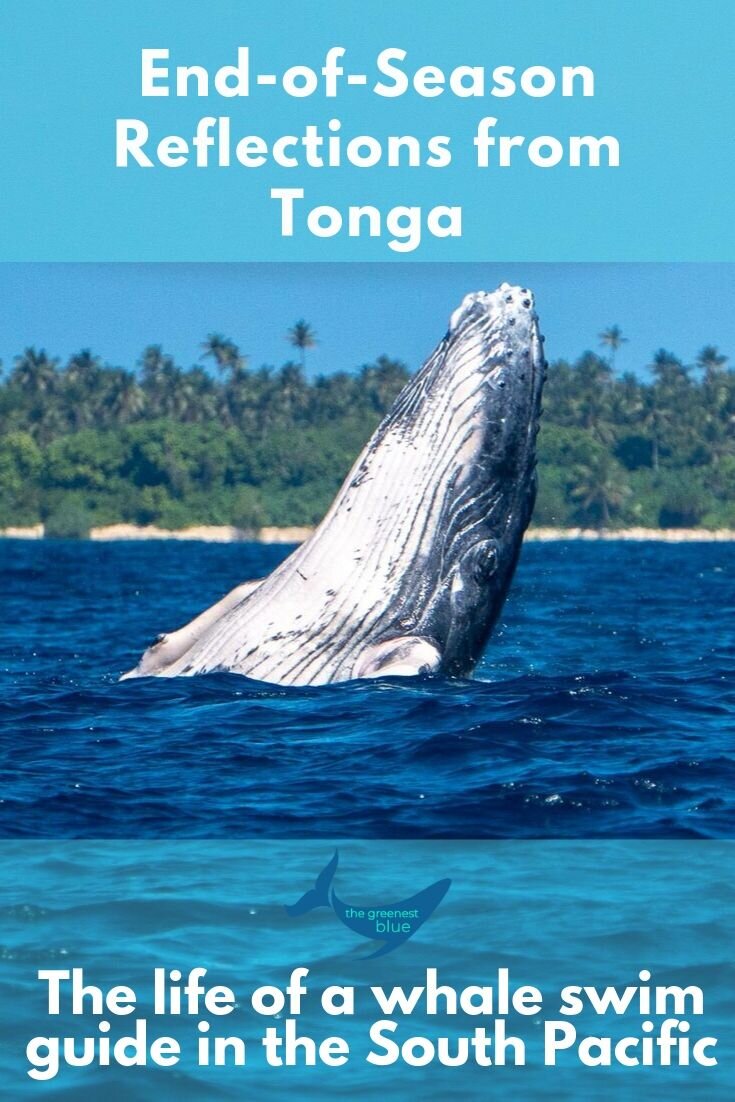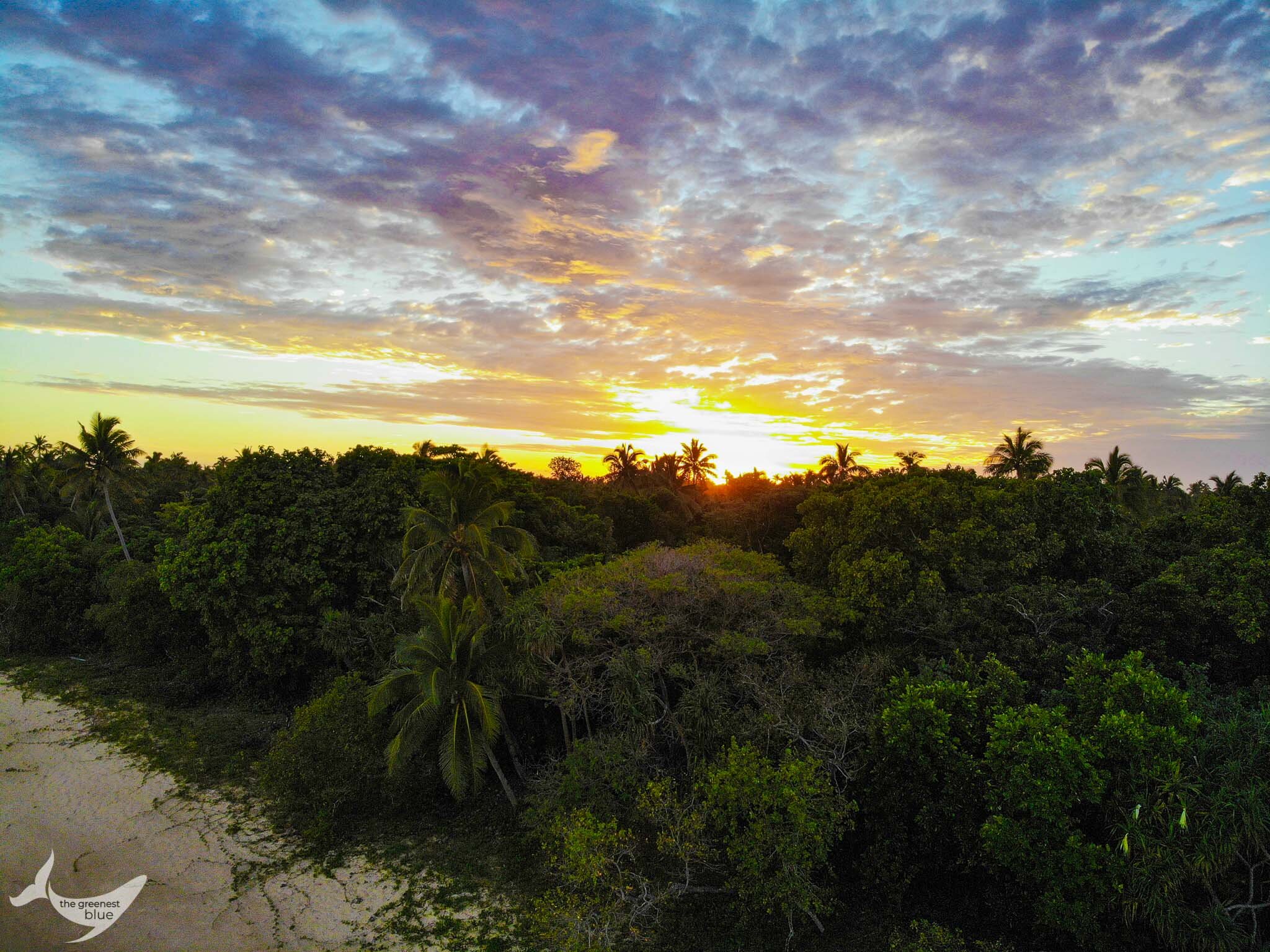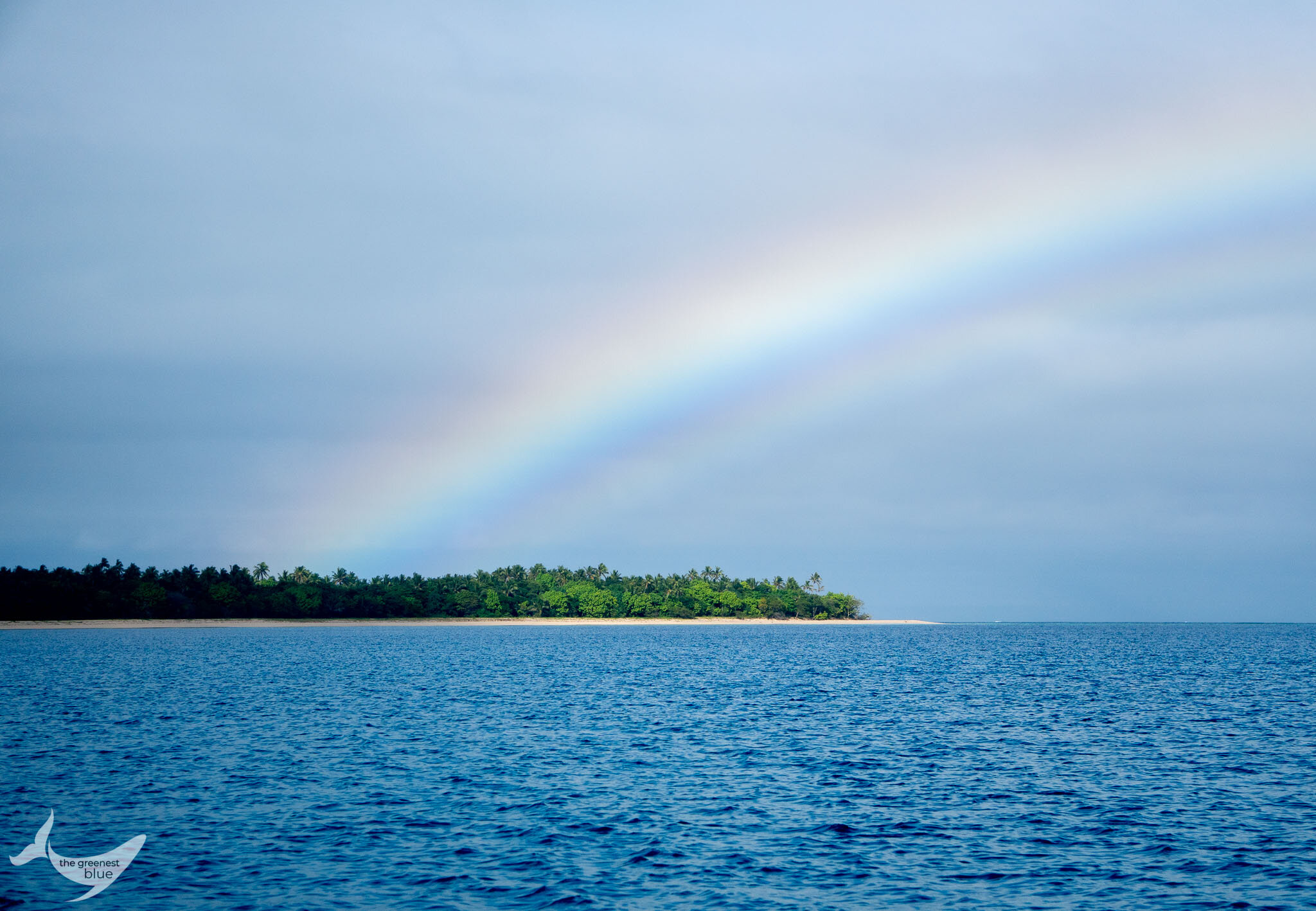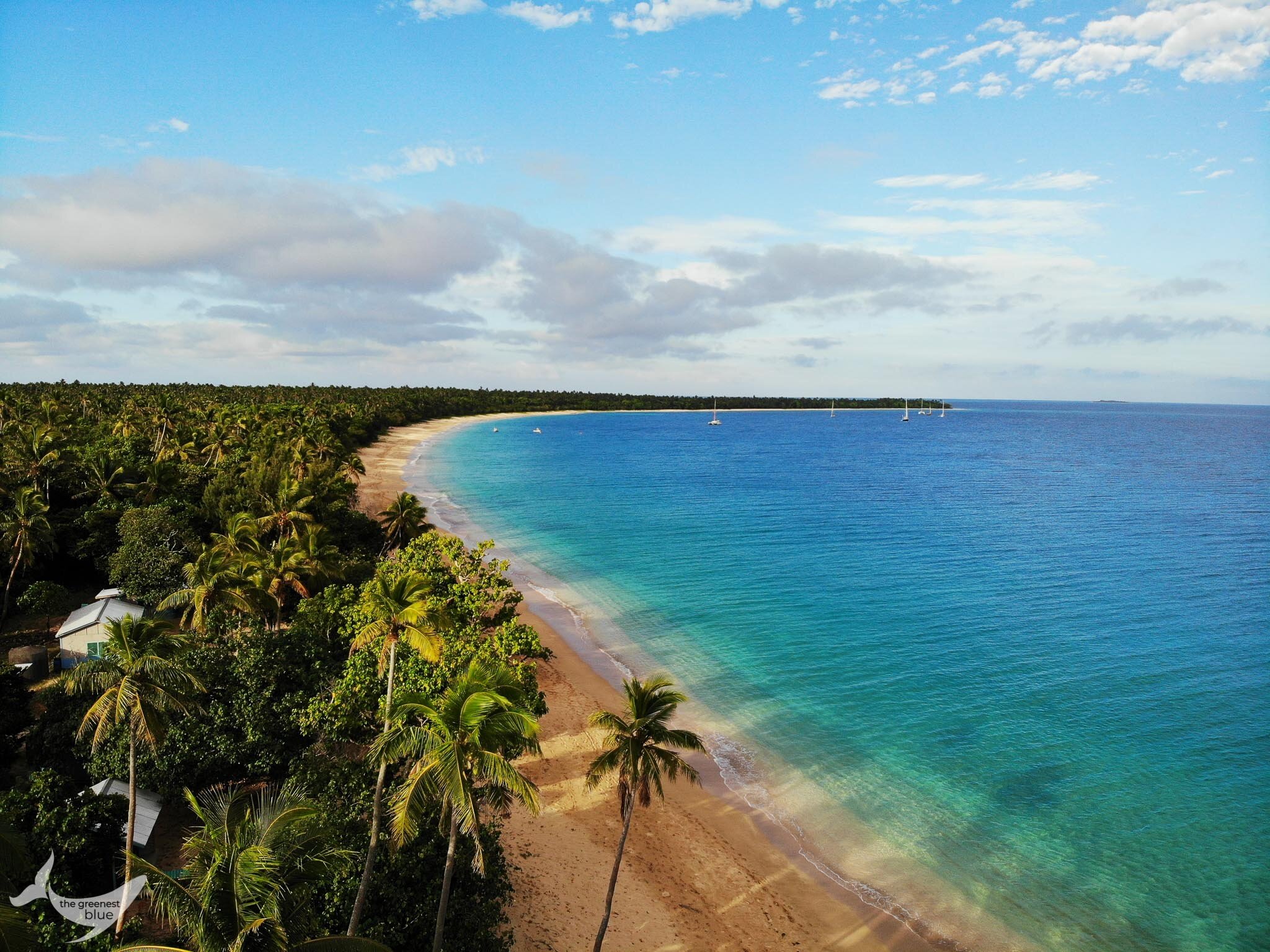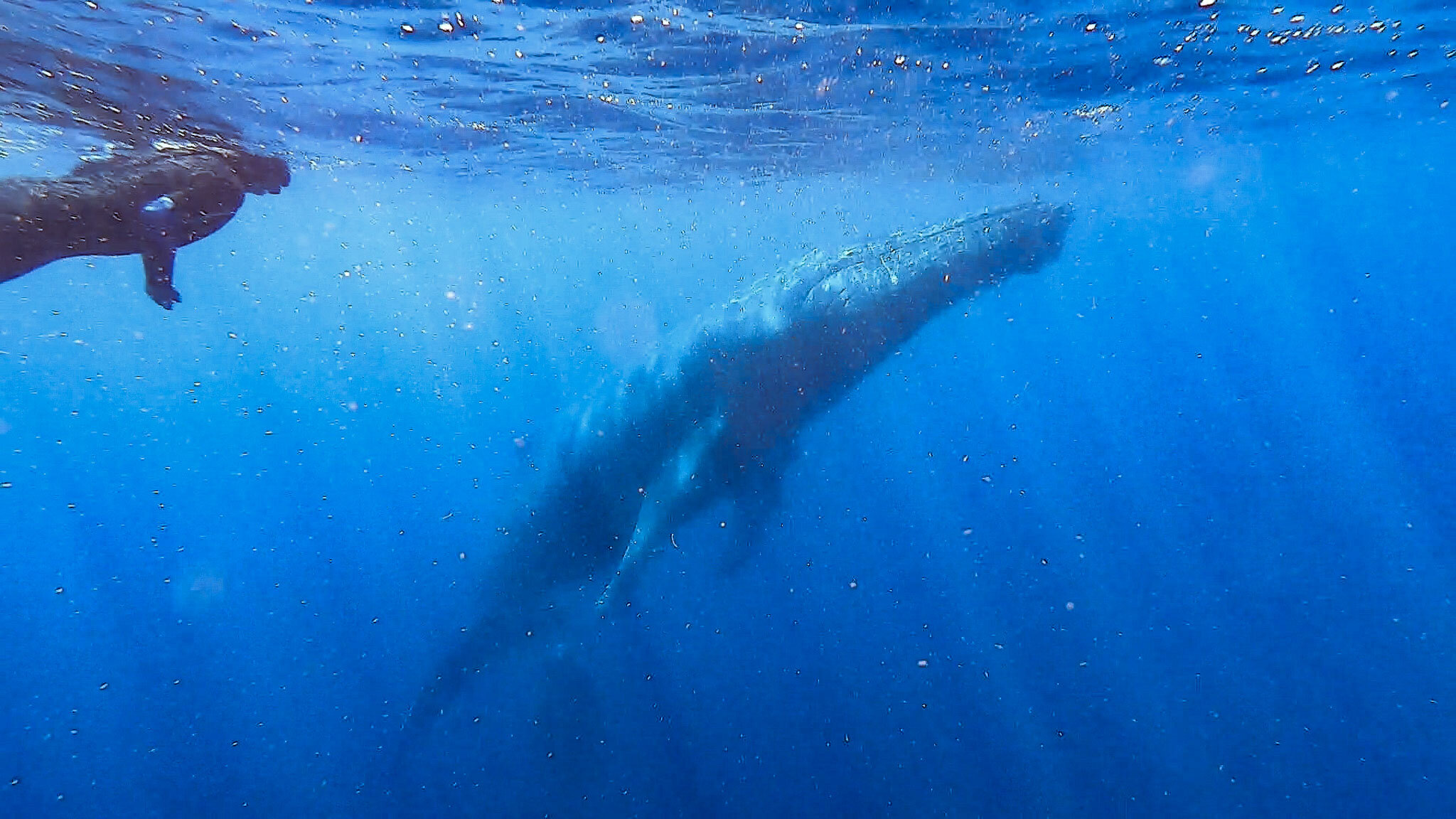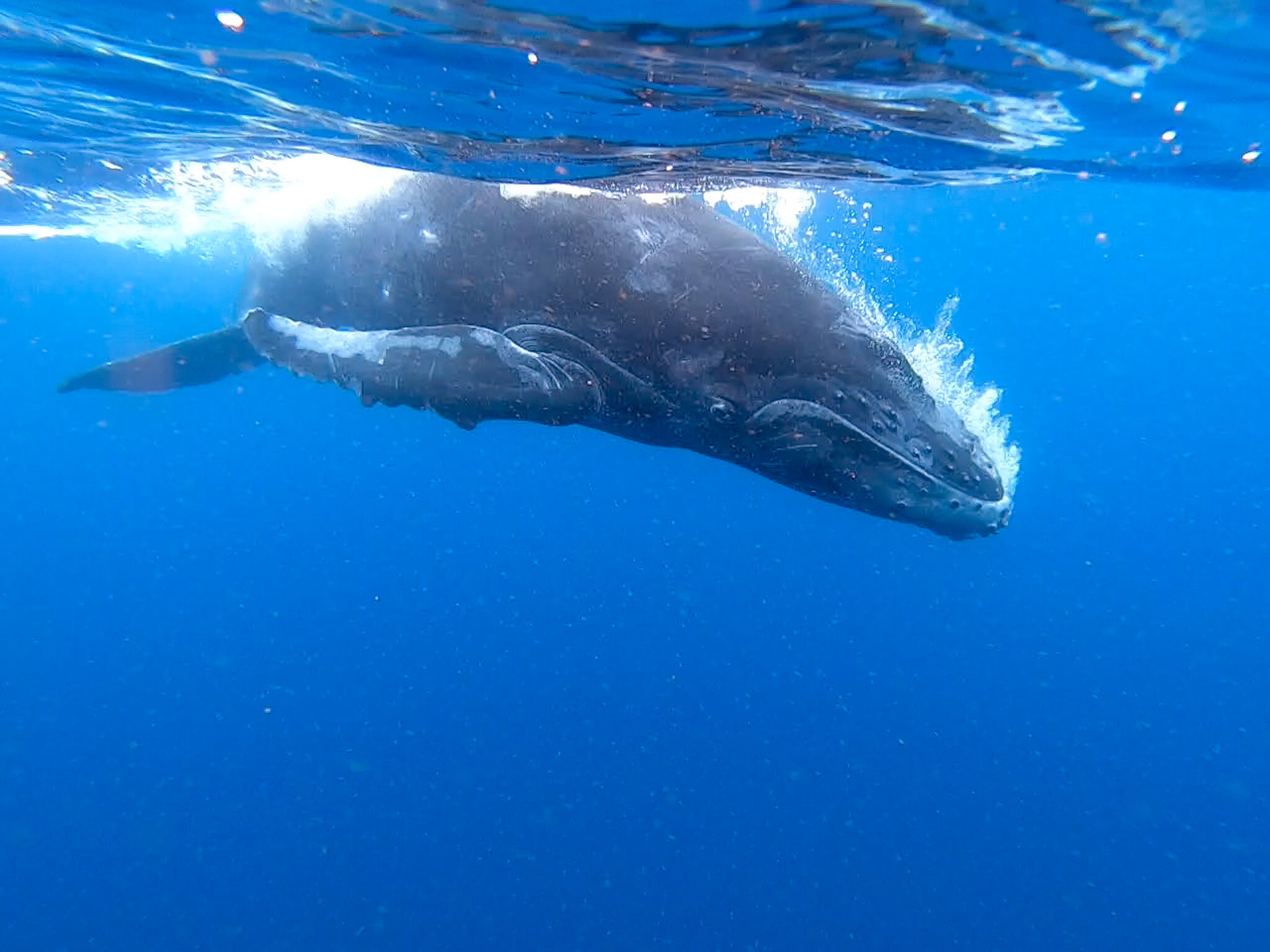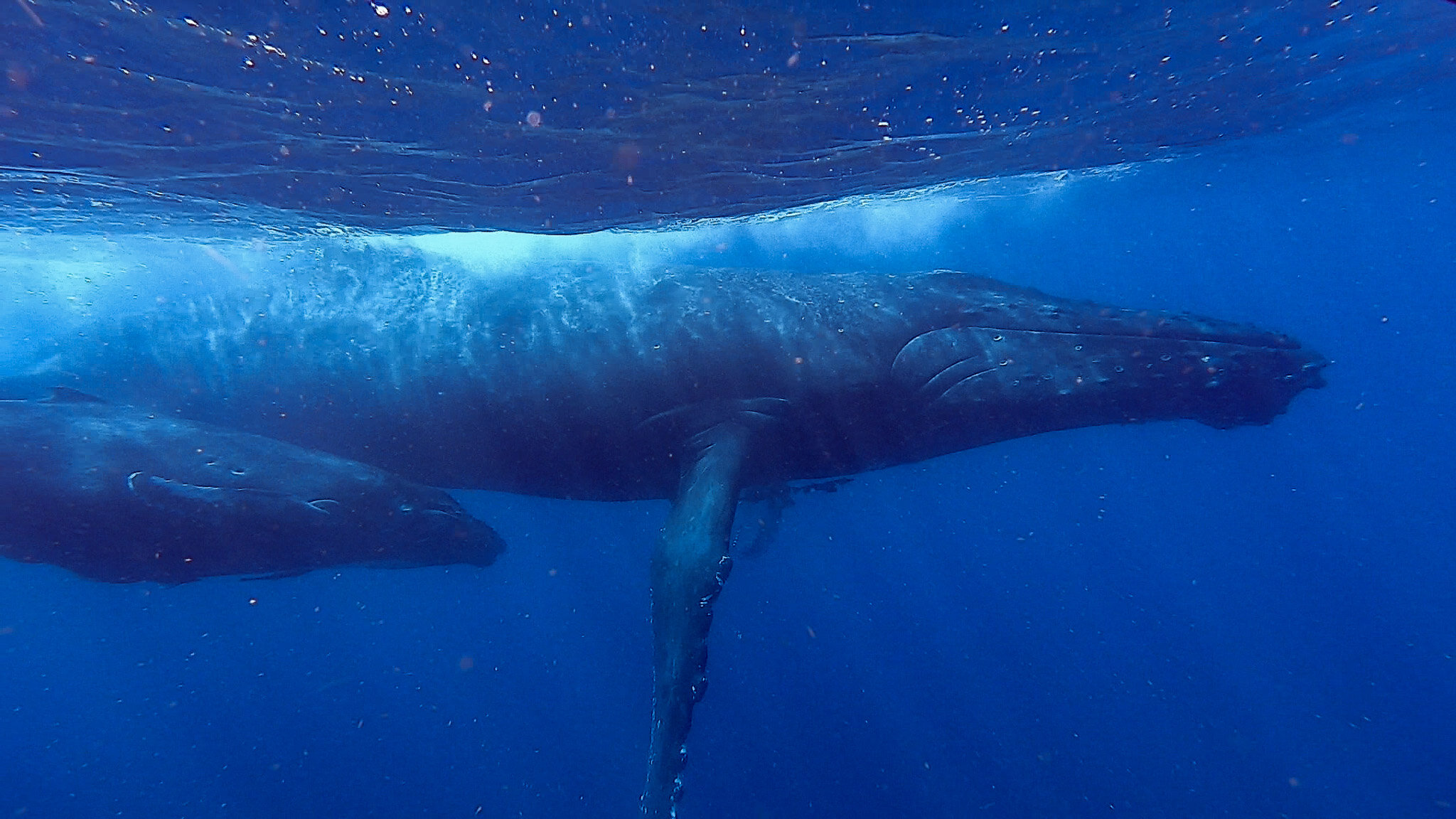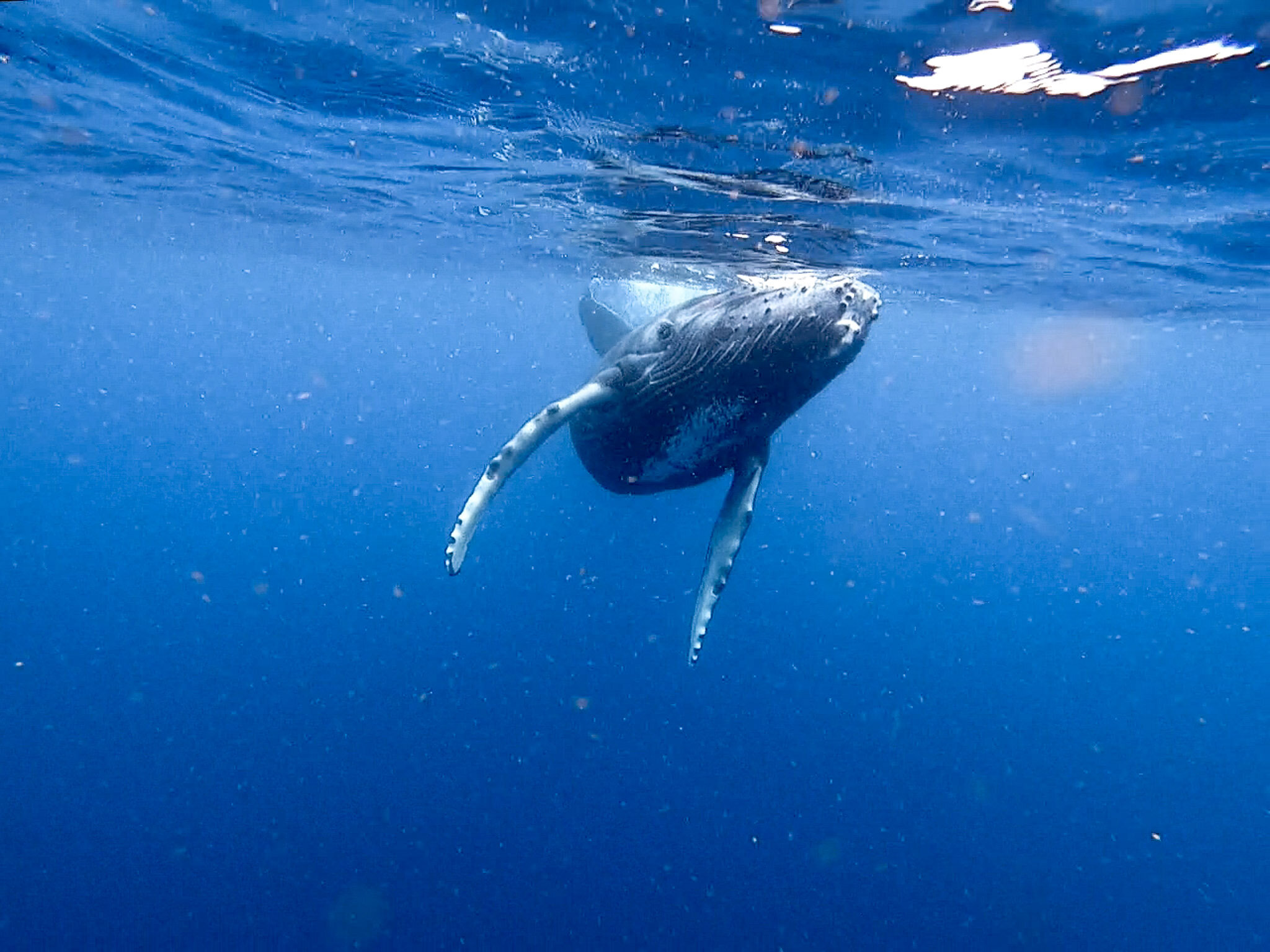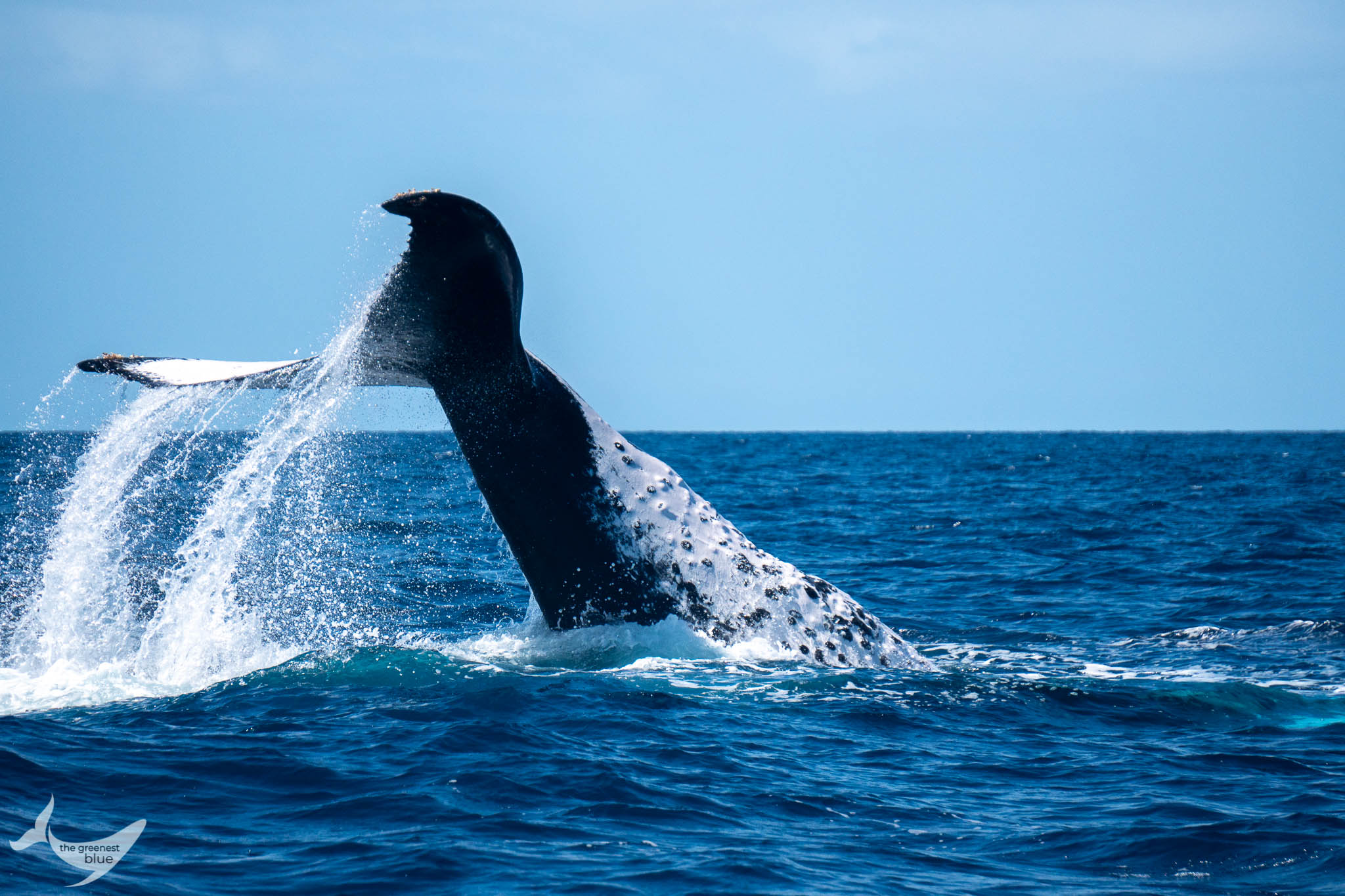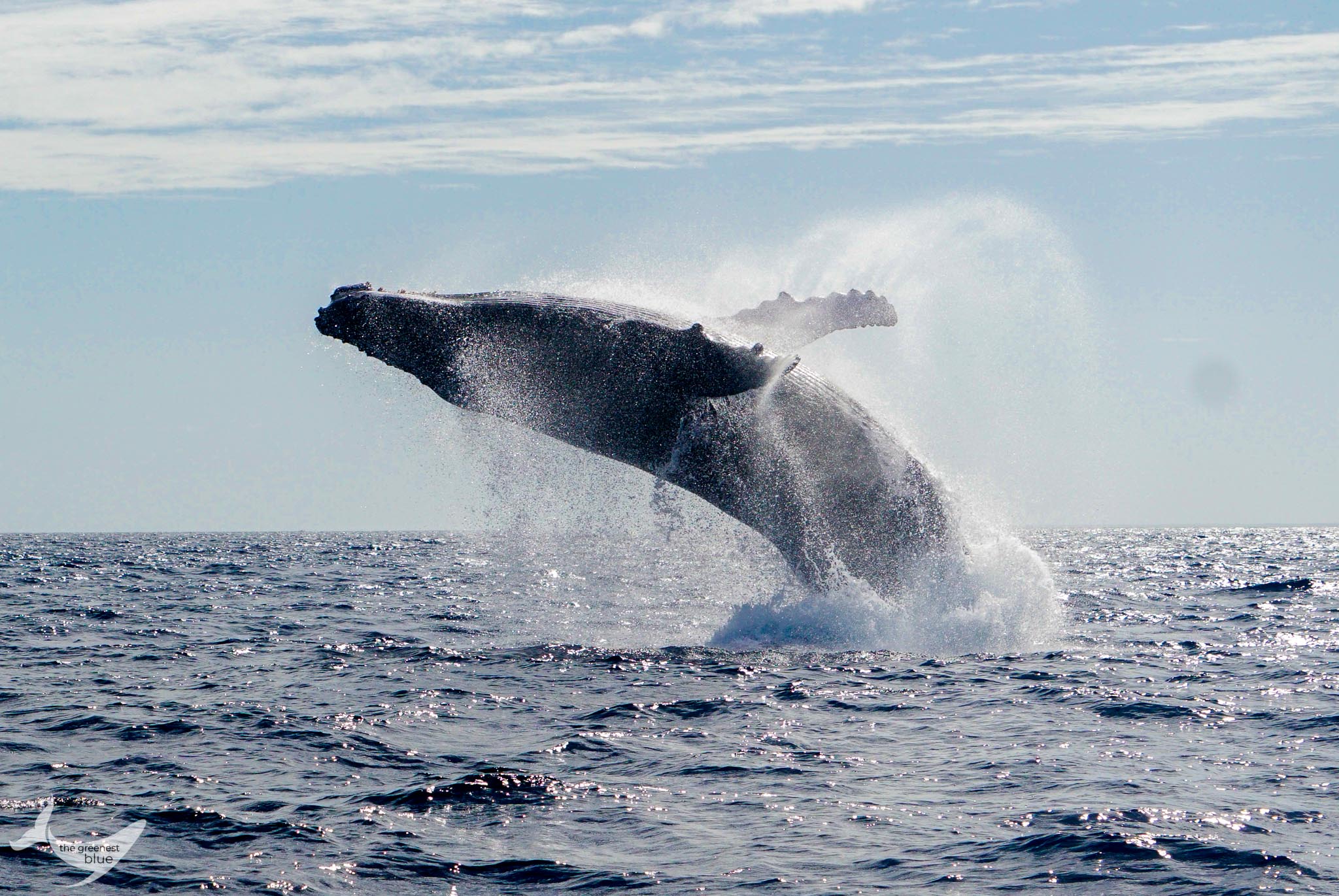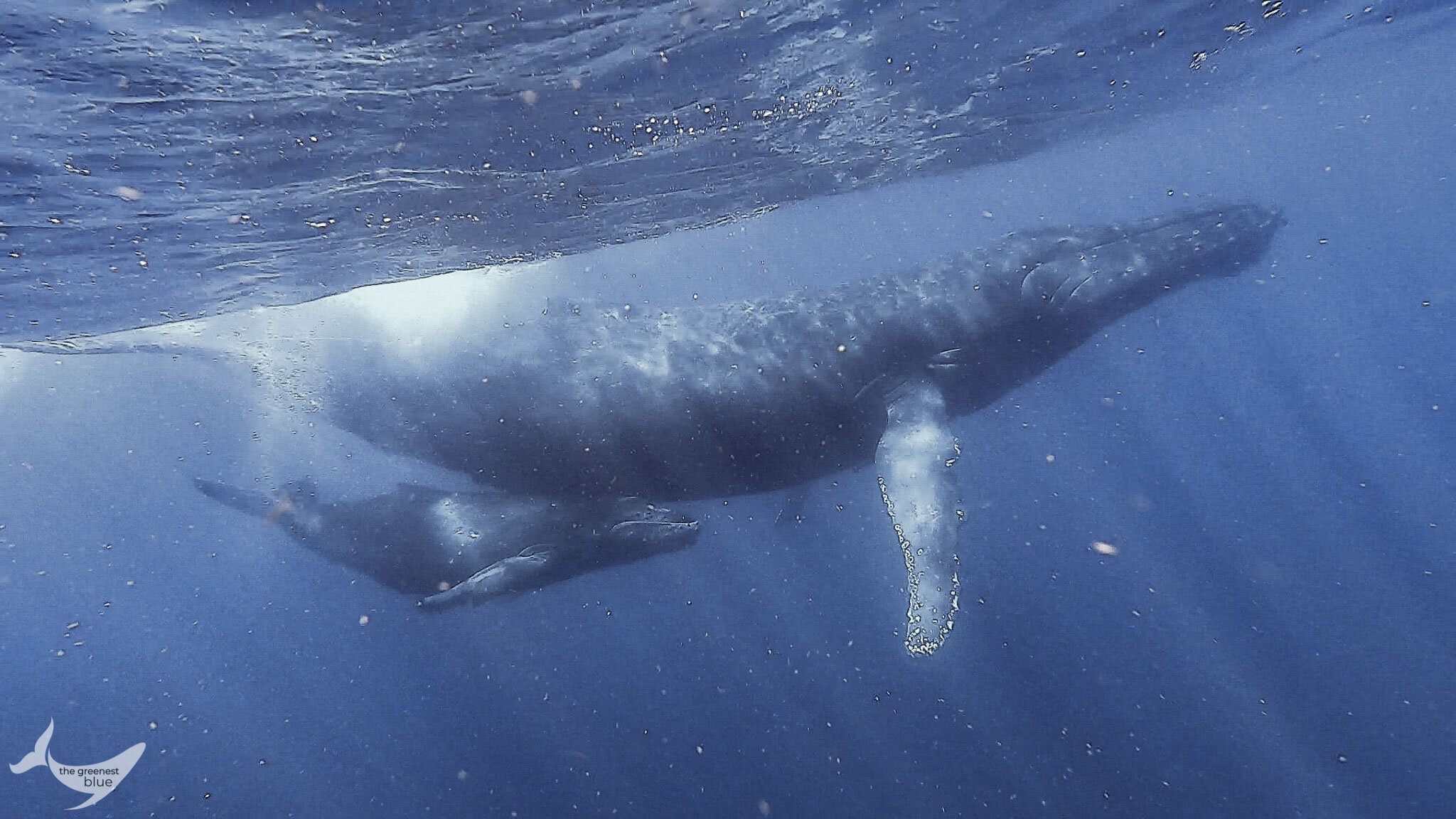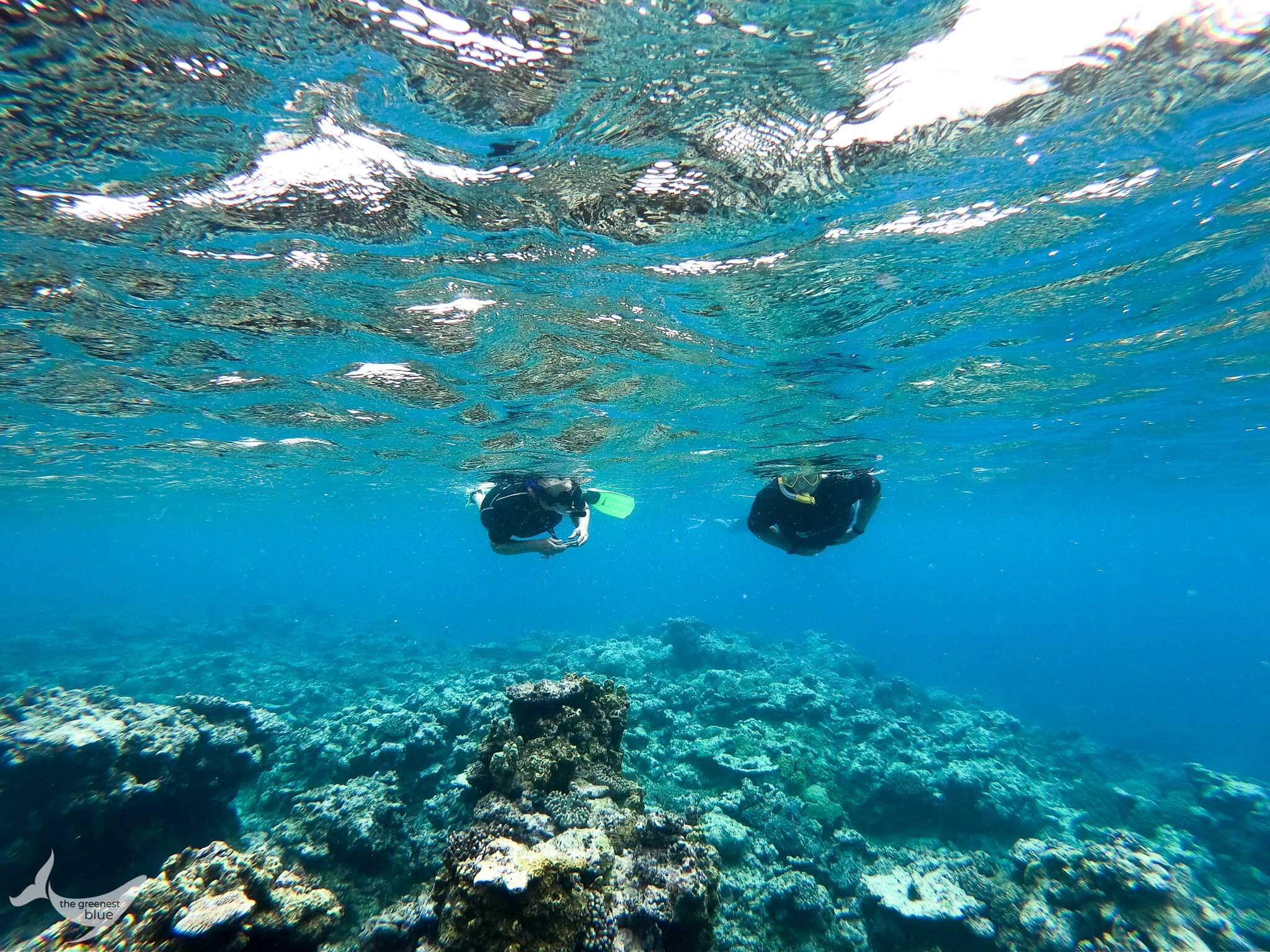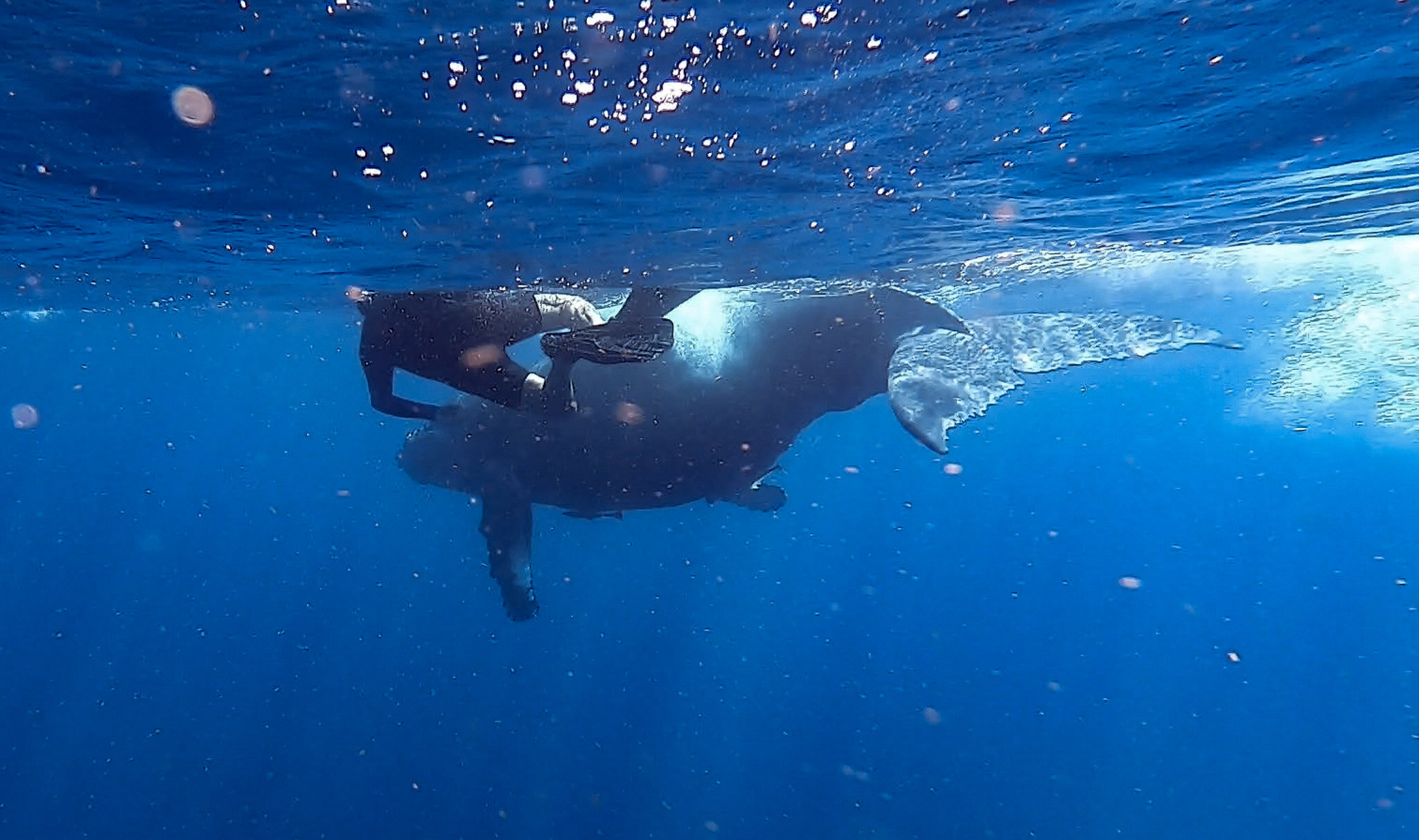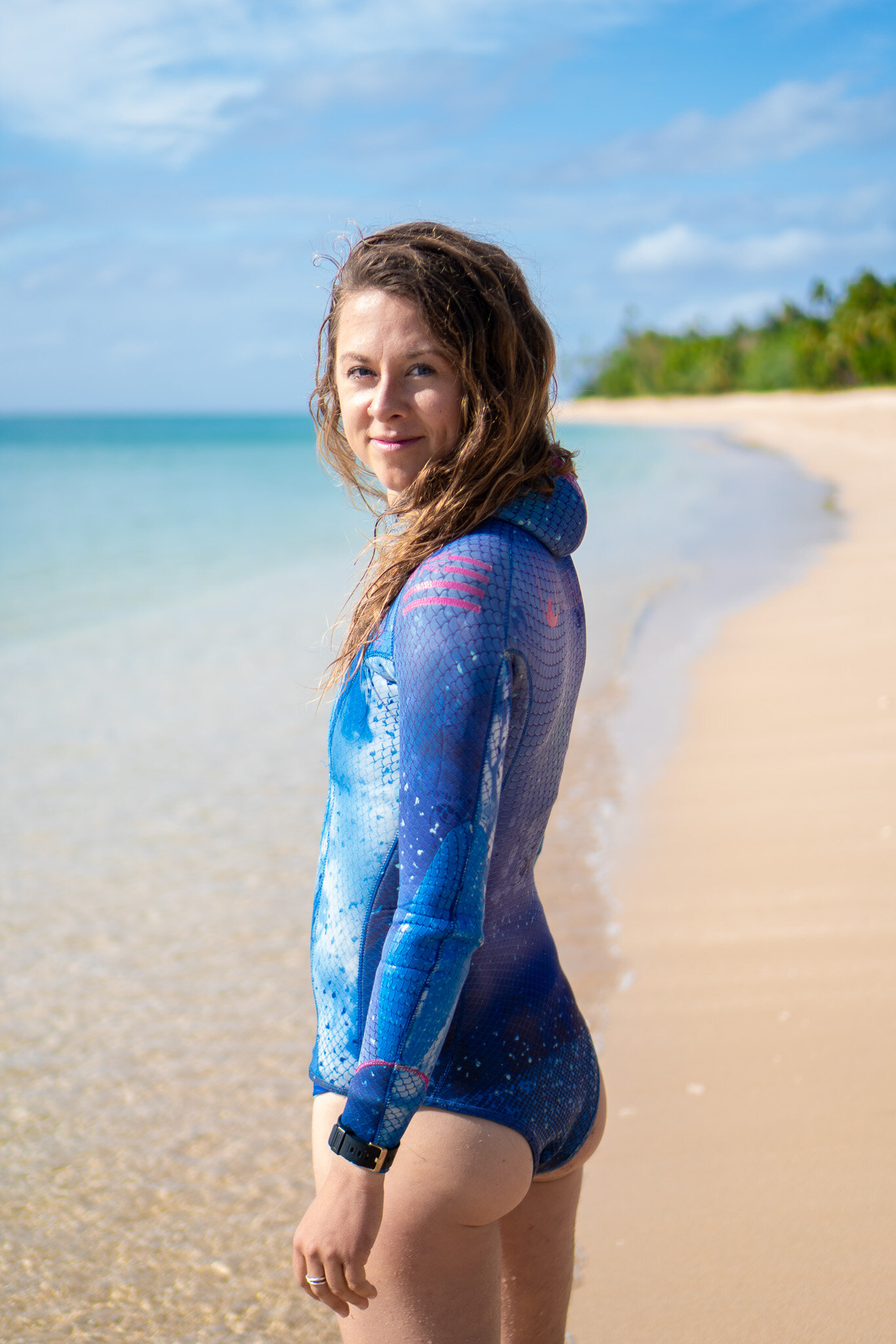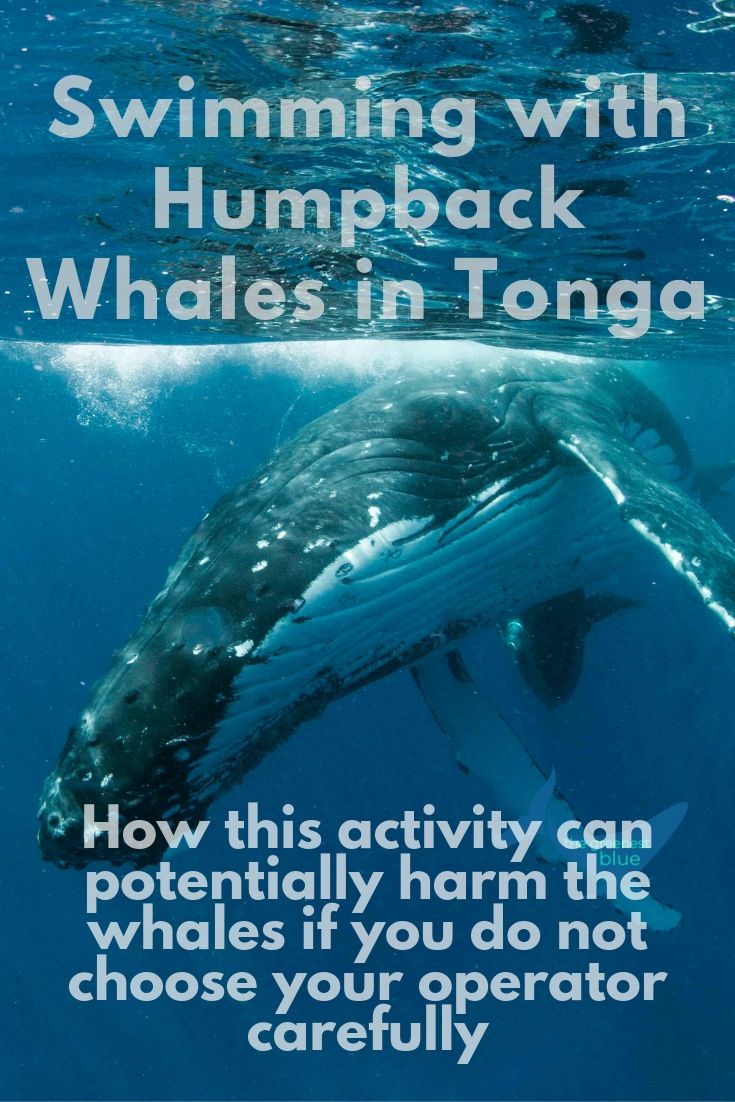Yes or No on the Ethics of Whale Swimming? - My Reflections on Tonga & Guide Life
This post contains affiliate links, which earn me a small commission on products I’m already in love with. This is at no extra cost to you! Thank you for supporting The Greenest Blue.
I can’t believe this whale season is about to come to an end. I feel like a little kid, ready to throw a tantrum and scream “NOOOOOOOO, I don’t want to go home, NO NO NO, I want to stay with the whales forever!” And as much as I like living life with the wide-eyed wonder of a child, I think that would be taking it a bit too far.
But still, the magic of Tonga is enrapturing. It doesn’t seem right to leave! It’s too soon! Getting to experience the company of whales in the water has absolutely blown my mind. This has also been one of the shorter seasons I’ve worked in the marine tourism industry, with our whale swim tours having started around mid-July and soon ending in early October. That’s just the way it works around here. The humpbacks come for a couple of months to do what they need to do, and then they head south to hop back on the krill-eating train in Antarctica. They can’t stay up here forever. I get it. I’d be getting pretty hangry by now if I were a whale.
Whale Karaoke Party Near Raoul Island
Also, as a side note, for those of you looking for some more nerdy whale literature, there was a really cool paper released recently that discusses how humpbacks might actually be making a pit stop on the way down south from their breeding grounds in places like Tonga and New Caledonia. Male humpbacks have been observed congregating around Raoul Island, a volcanic landmass approximately 700 miles off the northeast coast of New Zealand. It seems that these whales are sharing their songs with each other in this one spot - literally, a whale karaoke party! Researchers think this little rendezvous is how whales from one breeding area pass on their unique song to whales from another. How amazing is that?
A New Understanding
I’ve also achieved a whole new level of understanding of the whales, along with pure curiosity, after spending time in the water with them. Doing so is like looking through a lens into their world, gaining a new perspective, and observing so much more than I think I could ever learn by watching them from a boat. If you read my posts from earlier this summer, you’ll know I was a bit unsure about the ethics behind whale swimming. I wanted to experience it for myself before I could make up my mind about whether it seemed morally right, or not. I also wasn’t sure if my decision would be so black and white. Would it be as simple as labeling whale-swimming either “ethical” or “unethical,” with no room for interpretation or blurred lines?
The Answer is No! This Ain’t Black & White
Well, my mind has opened up quite a bit, my heart has been touched, and my soul’s been getting a bit tingly. Being in the water with whales is an out-of-this-world experience. If you have also felt connected with the ocean, or marine wildlife, or any other part of the natural world at a deeper level, then maybe a part of this will resonate with you. I believe that whale-swimming can be ethical. Here’s how: in order to operate to a standard of ethics I can stand behind and still be able to interact with these whales in their natural environment, it is all about having the right mindset and setting the right expectations.
Setting the Right Expectations for Guests
Firstly, speaking to the guests about wildlife encounters and the unpredictable nature of, well, nature, helps to realistically set the level of expectation. “Maybe we’ll get in the water today, maybe we won’t. Yes, that Instagram shot you’re showing me? That’s amazing, but we make sure to operate with the wellbeing of the whales first and at the forefront of our tours. So we can’t guarantee anything.” I wrote about that in one of my earlier blog posts:
For those of us operating marine tours, I think it’s about setting realistic expectations for guests. “We’re working with nature, but there are no guarantees! Today, everything is up to the whales. We might be watching them as they rest or socialize. It will not always be appropriate for us to get into the water with them. In that case, we may elect to watch from the boat.” If you’re going to book a wildlife tour, it would be smart to book a few different days to give yourself the best possible chance of a whale encounter in the water.
Practicing Patience & Respect
Secondly, if you approach each and every whale with a level of respect, an open mind, and patience, there is less pressure on you and your skipper to satisfy the customer’s unrealistic expectations. Staying calm, and observing the whales’ behaviors carefully, helps to ground me and sends a reminder that this is about them. This isn’t about us. The whales get to decide if we swim, or don’t swim. The opportunity to swim with them is a true privilege, never a right. If they accept our presence, then…wow. It’s an incredible gift. If they appear to be unsettled or are actively avoiding the boat, we have to be smart and willing to recognize that, allowing that encounter to end and letting them continue on with their day, without us.
Staying Above the Emotional Drain
Working in ecotourism can be emotionally draining if, as a guide, you constantly put the pressure on yourself to deliver a “perfect” encounter, every day. It’s not possible. Like I said, this is nature we’re talking about. Throughout the season, I’ve become better at accepting that. I’ve taken the pressure off of myself, while at the same time managing to deliver a more interactive and engaging tour, no matter what’s happening out on the water. The secrets? Staying chipper, smiling, engaging guests in conversation, instigating “teachable moments” about other marine life if we aren’t having much whale luck, and remembering to celebrate the pure joy and adventure of being out on the ocean.
Peaceful Coexistence
My goal through work in ecotourism? Achieving a level of peaceful coexistence with our oceanic friends, and teaching others about how to do just that. Other strategies: to have a relaxed mindset as we enter into the world of these whales, to be open to learning from them, and not feeling offended if a whale does not seem accepting of us at any particular moment. We inhabit this planet together. Can we respect our diverse needs? Why wouldn’t we want to celebrate each other’s beauty, while respecting the other species’ lifestyle?
Let’s just say, if you choose an ethical operator and set your expectations right, you’re setting yourself up for an incredible, and meaningful, wildlife encounter. Whale swimming can be completely life-changing, and an ethical way to experience the magic of the ocean.
